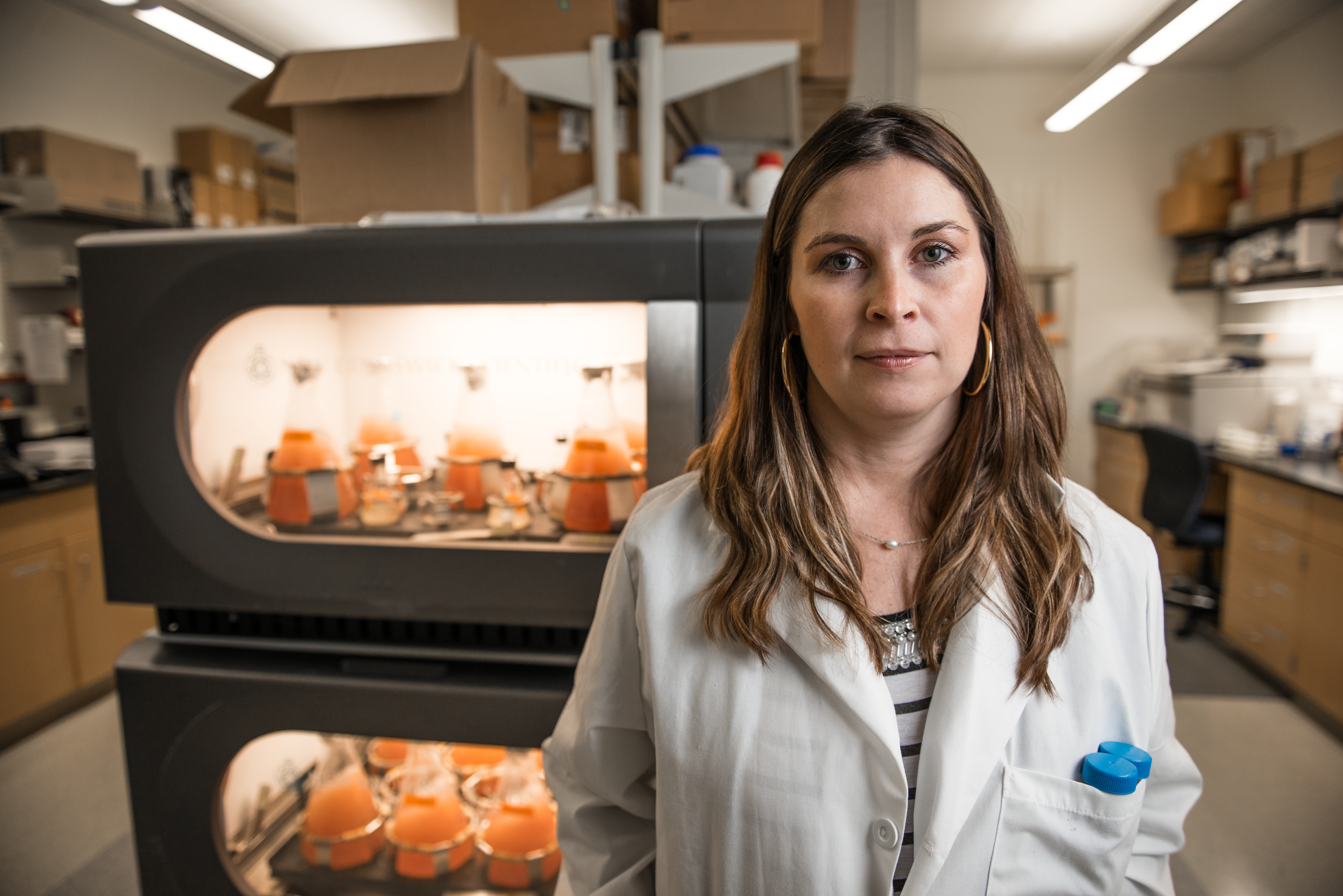Tucked inside a small laboratory at UConn’s Technology Incubation Program (TIP) in Farmington, Conn., Nicole Wagner is trying to cure vision impairment and blindness for more than 30 million people worldwide.
Using a protein, grown in the laboratory and implanted behind the retina, this promising new procedure offers hope for patients with age-related macular degeneration (AMD) and other retinal diseases.
“These are terrible diseases that truly impact the quality of life for many people,’’ said Wagner, the president and CEO of LambdaVision. “To offer patients the possibility of restoring their vision provides them the chance to see a new grandchild, resume a golf game, drive again or read a favorite book. For many people, restored vision would allow them to return to an independent life.’’
LambdaVision uses a light-activated protein, bacteriorhodopsin, to stimulate the retina of patients suffering from impaired or lost vision due to retinal degenerative diseases. The protein, isolated from high-salt environments, including the Dead Sea, is grown and purified in the laboratory. The protein works by absorbing light and converting it into a signal that is picked up by specialized cells in the retina, relayed to the optic nerve and ultimately interpreted by the brain.
More than 31 million people worldwide suffer from irreversible vision loss caused by macular degeneration and retinitis pigmentosa. The incidence of blindness caused by retinal degenerative diseases is increasing at a rapid rate due to an increase in the global geriatric population, Wagner said.
LambdaVision’s implant can restore high-quality vision to those patients who are no longer candidates for traditional treatments and have end-stage retinal degeneration, Wagner said. Current treatments only succeed in slowing the progression of disease.
LambdaVision was founded through support from UConn’s Technology Commercialization Services in 2009. Dr. Robert R. Birge, distinguished professor of chemistry at UConn, led a research group that included Wagner.
The protein is in pre-clinical trials across the country to determine the stability and efficacy of the implant.
“LambdaVision has been incredibly fortunate to have the continued support of UConn and the State of Connecticut, and we owe much of our success to the incredible mentors that have helped us to propel the research and development and commercialization of the technology,’’ she said. “In the early stages of development, they were the believers.’’
LambdaVision has won many awards, including most recently: a 2016 UConn SPARK Technology Commercialization Fund Award and the prestigious 2016 MassChallenge CASIS-Boeing Prize for Technology, which allows the company to carry out experiments aboard the International Space Station. Since gravity can interfere with the uniformity of the retinal implant films, the hope is that work done in microgravity will be faster and yield improvements in the homogeneity and stability of the product.
The company also won the $15,000 Wolff New Venture Prize, sponsored by UConn’s Connecticut Center for Entrepreneurship and Innovation (CCEI) and a National Science Foundation Small Business Innovation Research Grant.
“To be on the brink of a new and exciting medical breakthrough is thrilling,’’ Wagner said. “I’m very eager to see this technology available in the medical community where it can make a difference in people’s lives.’’



